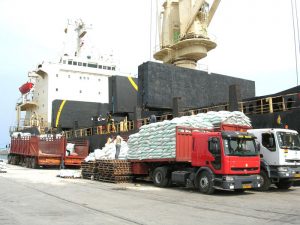It has been nearly six months since the Bank of Ghana (BoG) Governor announced that five local banks that could not meet the new minimum capital requirement would be supported with a government-guaranteed bond of GH¢2billion to satisfy this requirement.
Ghana Amalgamated Trust (GAT) will distribute funds raised through a government bond structured for five years and given to the banks as zero-coupon bonds. What this means is that the banks will not pay the interest (21 percent) on the bond yearly, but will do so after the end of the fifth year with the principal. The GAT will also take equities in the banks and exit after the five years.
It was announced that by end of March this year, the bond would be raised and the money hit the five banks’ accounts – namely NIB, ADB, UMB, Prudential and OmniBSIC. But it is June and these banks’ fate remain unknown; in fact, nothing has been publicly said about when the money will hit the accounts of these banks.
Meanwhile, the other 18 banks competing in the same industry with these five banks are well capitalised because they are operating with the new capital requirement, which is 70 percent higher than the previous capital of GH¢120million the five banks are still operating with. The five local banks are therefore less competitive in the industry, as they do not have the same financial muscle as their competitors.
To worsen their situation, the powers that matter seem not to even know when the GAT money will be ready for the banks. At the last Monetary Policy Committee meeting with the media, the central bank Governor, Dr. Ernest Addison, was asked by our journalist Obed Attah Yeboah when the money would be ready. The Governor surprisingly said: “I cannot give you the exact timeline on when the GAT money will hit their accounts. I think we should try to get that information from the GAT”.
The same reporter followed up the Governor’s answer by asking the Managing Director of GAT, Eric Nana Otoo, on Thursday June 6, 2019 the status of the money. He simply answered: ‘At the right time, we will provide an update”.
However, this paper understands that the five banks have signed a pre-contract that binds them to the GAT for two years within which they cannot pull out of the agreement, even though the money has not been made ready yet and six months of the two years have already gone.
Commenting on this, banking expert Dr. Richmond Atuahene said it is unacceptable that management of GAT, BoG, and the Ministry of Finance have kept quiet about the issue; adding parliament must haul the Finance Minister or the governor to answer questions.
“If the money has not hit the banks’ account, it means that those five banks are currently non-compliant. Again, it means the banks cannot do what the others banks can do because they are highly undercapitalized; so they are less competitive than their competitors.
“The Ministry of Finance and GAT should come and tell us what the status of the GAT is. Parliament should invite the Finance Minister or the Governor to explain where they are with the GAT money. If he has not gotten the money, he should let us know,” he told the B&FT in an interview.
Yes, commercial banks in the country per the law are required to have at least GH¢400million capital before they can operate. What it essentially means is that the five local banks are operating ‘unlawfully’ because of a certain government-guaranteed bond that has been promised.
It must be remembered that other banks that were unable to meet the capital requirement at the end of last year had their licences revoked or were downgraded to savings and loans companies. So, if five banks are still operating with the same capital for which others had their licences revoked, then the BoG has not treated those banks with fairness and balance.
Again, these ‘GAT banks’ also need the money to boost their minimum capital in order to be competitive in the banking industry. As it stands, they cannot undertake big-ticket transactions their competitors would be able to do. Prolonged starving of funds would be inimical to their survival in this highly competitive industry.
The banking sector plays a very instrumental role in this country’s economy, hence the silence from authorities on this issue is not helping matters. The taxpayer needs answers.
Source: thebftonline.com






